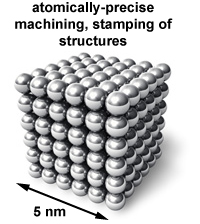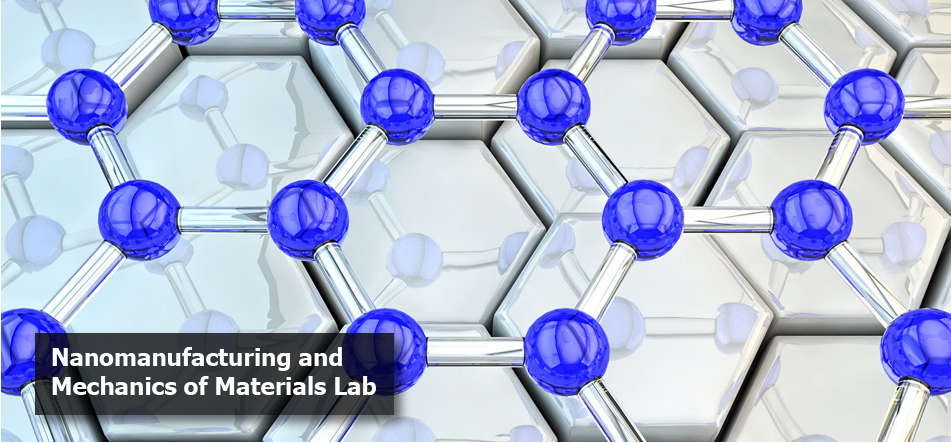Overview


In order to enable production of new technologies from recent scientific discoveries and advances in understanding matter at the nanoscale in the biological, chemical, electrical, mechanical, optical and other domains—new paradigms in manufacturing are needed.
To address this critical need, the lab’s primary research focus is in the development of novel manufacturing technologies, nanomanufacturing processes and tools, and experimental mechanics of materials. Specifically, the research investigates materials, tools, and techniques to allow for robust and repeatable nanofabrication of structures, systems, and technologies with atomic-level control of size, shape, position, and chemical composition.
Areas of Specialization
Nanoscale Manufacturing and Nanomechanics
Nanotechnology is the understanding and control of matter at dimensions between approximately 1 and 100 nanometers (1 nanometer = 1 billionth of a meter or approximately the size of 10 hydrogen atoms), where unique phenomena enable novel applications. Nanoscale manufacturing involves research in the development of tools and processes for the production of nanotechnology including nanoscale structures, devices, and systems.
Lab Capabilities
The Nanomanufacturing and Mechanics of Materials Lab is equipped with state-of-the-art mechanical fabrication, characterization, and material synthesis capabilities. The lab houses a class 1000 modular cleanroom with two nanoindenters, two atomic force microscopes, sputter coater, chemical vapor deposition system, spin coater, snow jet cleaner, chemical hood, various optical microscopes, computer simulation cluster, and other related equipment. Centralized facilities for high-resolution electron microscopy, nanofabrication, and spectroscopy are available in the Nanoscale Research Facility (NRF) and Major Analytical Instrumentation Center (MAIC) on campus.
The lab also provides nanomechanical measurement services for the UF campus and interested companies.
News
These tools and processes require a high degree of control in sensing, assembling, and positioning matter at the nanoscale in order to achieve prescribed levels of performance in production and service.
Nanoscale mechanics of materials is the study and characterization of the mechanical behavior of individual atoms, systems and structures in response to various types of forces and loading conditions. Both areas of specialization are multidisciplinary, and many research groups are located in mechanical engineering, materials science and engineering, physics, and chemistry departments.
Recent Publications
Spaceflight-Induced Alterations in Cerebral Artery Vasoconstrictor, Mechanical and Structural Properties May Contribute to Elevations in Cerebral Perfusion and Intracranial Pressure,
The FASEB Journal (2013)
Three-Dimensional Visualization of Nanoscale Structure and Deformation
Journal of Mat. Research (2013)
Contact Us
Curtis R. Taylor, Ph.D.,
Laboratory Director
224 MAE-B
P.O. Box 116300
Gainesville, Florida 32611
Email: curtis.taylor@ufl.edu
Phone: 352-392-4440
-
✦12/14/2013--Congratulations to Dr. Bijoyraj Sahu on completing his Ph.D. degree and graduation!
-
✦Professor Taylor now serving as Chair of the ASME Research Committee on Nanomanufacturing Technology



224 MAE-B, University of Florida, Gainesville, FL 32611;
curtis.taylor@ufl.edu, (352) 392-4440